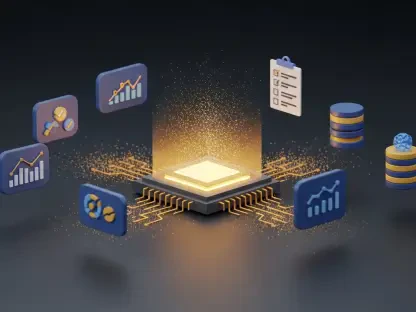Listen to the Article
Software as a Service, often termed SaaS, has been on the scene for a while. It is technically transforming businesses like yours, offering cost-effective, flexible software solutions.
However, as artificial intelligence (AI) continues to take up space, an emergent question in technology circles, being debated today is whether it will spell the end of traditional industry SaaS. Leaders argue that the rise of agentic AI—tools capable of automating and orchestrating tasks across systems—could upend the SaaS model entirely. Others believe that AI will simply enhance SaaS, evolving it but leaving its core value proposition intact.
So, will AI be the new basis for enterprise software, or will it merely augment current SaaS offerings? This article discusses the possible future of SaaS in an AI era—weighing the prospects against the pitfalls.
The Evolution of Saas
Since its inception, SaaS has transformed business operations by eliminating on-premise software and reducing IT overhead. Companies now rely on SaaS applications for everything from customer relationship management to enterprise resource planning. The appeal of SaaS lies in its convenience of access, subscription-based pricing, and continuous updates, making it a suitable solution for businesses of all sizes.
Yet the growing role of AI is pushing this technology to evolve. Predictive analytics and natural language processing powered by AI are reimagining how businesses interact with their software. While AI enhances existing capabilities, it has the potential to fundamentally reshape the SaaS model.
Ai’s Role in Transforming Saas
Intelligent Automation
AI has already begun to complement SaaS platforms by automating mundane activities. Chatbots, workflow automation, and AI-powered analytics tools have improved productivity and efficiency in several industries. In this sense, instead of replacing SaaS, AI is now playing the role of an enhancer, making software more efficient and intelligent.
Personalization & Adaptive Learning
Traditional SaaS applications provide cookie-cutter user experiences, but AI provides a level of personalization, which includes applications that can track user behavior and dynamically change interfaces, recommendations, and workflows. This is very advantageous in SaaS marketing automation tools, where customized messaging may greatly increase conversion rates.
Predictive Analytics & Decision-making
SaaS applications based on AI, use machine learning algorithms to forecast future patterns, detect anomalies, and make decisions from numerical data. This feature is most useful in customer relationship management software, where predictive analytics can be employed to spot potential sales opportunities and buyer retention.
AI-generated Code & Low-code/no-code Platforms
Innovation is at the center of the constantly changing field of software development. How, what, and when developers write code, debug, and push code has transformed with each technological leap, starting from high-level programming languages to cloud computing.
Another significant change is the emergence of coding assistants supported by AI. Tools like GitHub Copilot, Amazon CodeWhisperer, and ChatGPT are completely changing the way developers work. They are disrupting how companies code by eliminating the need for specialized programming knowledge and democratizing it across sectors. This trend could challenge traditional SaaS providers by shifting control to end users.
AI as a Standalone Software Model
While AI currently complements SaaS, some argue that AI-driven platforms can eventually replace conventional SaaS applications. It could take place in one of the following ways:
AI-as-a-Service (AIaaS): Suppliers provide access to machine learning and AI functionality through cloud-based systems. This enables companies to leverage pre-trained models, create custom AI solutions, and integrate AI into their apps without requiring substantial in-house expertise or infrastructure.
Autonomous AI agents: AI-powered software with the ability to learn and decide independently without human intervention may displace rule-based SaaS applications. Instead of adhering to pre-programmed processes, AI can alter processes dynamically, making traditional SaaS frameworks redundant.
Challenges & Barriers to AI Replacing Saas
Naturally, in spite of all AI’s benefits, there are also several obstacles that prevent it from fully substituting SaaS. AI is the science, and SaaS is the implementation of the science. Even when one talks of AI models, they are part of the software and cannot stand by themselves. A trained AI model is a file of structured data executed by a program (software). Some other hurdles include:
Data privacy and compliance: AI-based systems are data-driven, and this creates privacy, security, and compliance issues. Most sectors, particularly health and finance, are regulated under strict rules of openness and transparency—something that AI cannot be relied upon to deliver.
Reliability and trust issues: AI models are not flawless; they require massive datasets, frequent updates, and human monitoring. Firms may not necessarily want to have complete trust in AI-based decision-making, given that AI models still have to establish themselves as trustworthy, especially when handling sensitive data.
Integration with legacy systems: Businesses with established SaaS solutions may struggle to transition to AI-native platforms.
Cost and infrastructure requirements: Developing and deploying AI-driven solutions require significant investment in computational capacity, data management, and talent. Most businesses may find it more cost-effective to integrate AI into existing SaaS platforms than replace them entirely.
The Future: AI & Saas Coexisting
While the majority see the benefits of incorporating AI into SaaS products, the sector is only just starting to embrace it, and many companies have no idea how to go about implementation. Despite this uncertainty, AI is already being used in various forms in SaaS products.
Rather than fully replacing SaaS, AI is likely to drive the next phase of its evolution. The most probable scenario is a hybrid approach where AI and SaaS coexist, with AI augmenting SaaS platforms.
Key predictions:
AI-enhanced SaaS becomes the norm: Future SaaS platforms will integrate AI by default.
AI-as-a-Service complements rather than replaces SaaS: AI-as-a-Service will enhance traditional SaaS offerings, so businesses can leverage AI without sacrificing existing software investments.
Ethical AI comes into focus: As AI adoption increases, businesses will focus on ethical AI development for fairness, transparency, and compliance.
Conclusion
Integrating artificial intelligence and machine learning into SaaS platforms is inevitable if businesses of any commercial segment wish to embrace future-proof technology and remain competitive. Process automation, personalization of users’ experiences, and numerically based decision-making are only some of the benefits, businesses simply need to invest in to take advantage of AI SaaS platforms’ immense potential.
Of course, ethical implications and issues will also need proper consideration, as they cannot compromise on data privacy and human oversight requirements. However, the consultancy expertise of a seasoned technology partner can make the ride of integrating AI a smooth and affordable one.
AI is not poised to make SaaS-based businesses obsolete but will undoubtedly transform the landscape.









